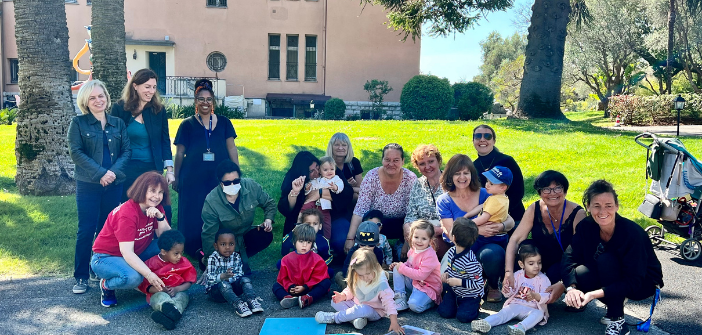The report “1000 First Days” published on September 8, 2020, by Boris Cyrulnik led to a collective awakening regarding the well-being of our little ones. The city of Nice has therefore implemented several projects that facilitate the inclusion of young children in society.
Following its 40th anniversary and a partnership with the city established by Mrs. Rubi, Deputy Mayor in charge of family and early childhood, the Anatole Jakovsky Naïve Art Museum welcomed children aged 18 months to 3 years accompanied by their childminders. The children have the opportunity to access the city’s museums, parks, and gardens because they are in what are called family nurseries. The childminders are employed by the municipality and, although they work from home, they are affiliated with an early childhood branch based on their sector. Today, it is the Mi-Ray-D’eau branch of Nice North that has been invited.
The children were welcomed by the museum director, who greeted them. They were then guided by a presenter around the museum. The visit was participatory, and the children were engaged, particularly regarding colors and objects they recognized. They were then given a detailed explanation of the work by Séraphine de Senlis: Pomegranate on Green Background.
The visit concluded in the museum’s garden with a painting workshop. The children had watercolors and some brushes at their disposal to try to reproduce Séraphine’s work they had previously seen. The aim was to appeal to their immediate memory to stimulate them while playing.
This type of outing allows children to step out of their daily routines and refine their sensitivity to the artistic world. This is why, throughout the year, the different early childhood branches of the city are encouraged to participate in various types of workshops with the children.
Mrs. Casalta, director of the early childhood department, tells us that even though they are still very young, it’s essential to maximize awareness in children to open cultural access to families. The city’s museums aim to become “baby-friendly” places with new arrangements designed to alleviate parents’ concerns about accessibility for them and their babies.
“In the long term, we would like to see more families in cultural places and for there to be less reluctance.”
– Stéphanie Casalta


